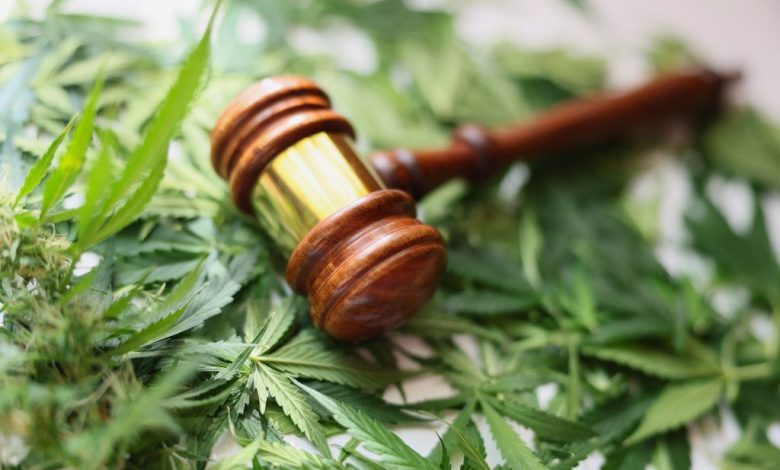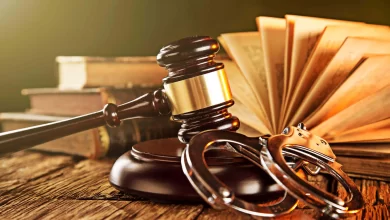Marijuana Possession Lawyers: Navigating Legal Challenges with Expertise

Navigating marijuana laws can be complex, especially with the ongoing changes around legalization and decriminalization in various jurisdictions. For those facing legal challenges, understanding the role of marijuana possession lawyers becomes crucial. These professionals guide us through the intricacies of the legal system, helping ensure our rights are protected.
With the shifting landscape of marijuana legalization, the nuances of state and federal laws can be daunting. Engaging a knowledgeable marijuana possession lawyer is essential for anyone dealing with possession charges, as they have the expertise required to navigate these legal nuances effectively. This expertise can make a significant difference in the outcome of legal proceedings, potentially mitigating penalties or achieving favorable verdicts.
Possession charges can carry serious consequences, affecting many aspects of our lives. As society’s perspective on marijuana evolves, the legal framework continues to change, requiring constant adaptation. Our aim is to assist those in need of legal support, ensuring their circumstances are addressed with skill and precision.Learn more about marijuana possession charges
Understanding Marijuana Possession Laws
Cannabis laws vary significantly across regions, influencing how we navigate its legal landscape. It’s crucial to understand the differences between federal and state laws, the distinction between medical and recreational use, as well as the consequences of marijuana possession.
Federal and State Cannabis Regulations
Cannabis remains a Schedule I substance under the Federal Controlled Substances Act, meaning it is prohibited at the federal level. Despite this, many states have enacted their own laws permitting the use of marijuana for both medical and recreational purposes. This legal inconsistency creates a complex framework that we must navigate when considering the possession of marijuana.
As a result, it’s important to be aware of both federal and state regulations to avoid legal complications. State laws can range from full legalization to strictly controlled medical usage. Understanding these differences is crucial for residents and visitors alike, as navigating these laws improperly can lead to significant penalties.
Medical vs. Recreational Use
Medical marijuana is permitted in many states where cannabis laws have been relaxed to allow patients to use cannabis for treatment of various conditions. Individuals with prescriptions or medical marijuana cards have legal protections not afforded to recreational users.
Recreational marijuana, on the other hand, involves the use of cannabis without medical justification. States permitting recreational use implement regulations, such as age restrictions and possession limits. We help clients differentiate between these types of use to ensure compliance with local laws. These rules aim to control access and reduce illegal distribution, highlighting the critical role of understanding the distinctions when dealing with cannabis.
Consequences of Marijuana Possession
Penalties for marijuana possession vary widely depending on state laws and whether the offense is considered criminal or civil. In states with strict cannabis laws, possession can result in fines, mandatory drug education programs, or even incarceration.
Civil penalties might involve community service or other non-criminal charges. It’s important for us to advise clients on potential outcomes and defense strategies when faced with marijuana possession charges. Knowing these consequences helps us make informed decisions and understand the stakes involved in cannabis-related offenses.
Medical Marijuana Legal Rights
Patients using medical marijuana have specific rights that need to be understood to avoid unnecessary legal issues. States that allow medical marijuana have established frameworks to protect patients with debilitating conditions. These regulations encompass aspects such as possession limits, qualifying medical conditions, and how marijuana can be obtained.
Understanding patients’ legal rights ensures that they can access necessary treatment while adhering to the laws in place. These protections offer a legal foundation for us to navigate state-specific challenges associated with medical cannabis use.
Decriminalization and Its Impact
Decriminalization efforts aim to reduce legal penalties associated with the possession of small amounts of marijuana. It’s important to note that decriminalization differs from legalization. While it removes the possibility of criminal charges, infractions might still result in fines or civil penalties.
Decriminalization impacts cannabis law by influencing public perception and reducing the burden on legal systems. It can foster more lenient views on the personal use of marijuana and influence future legislation, shifting how we view and manage cannabis-related offenses in our society.
Legal Representation for Marijuana Charges
In the realm of marijuana-related legal issues, consulting with specialized attorneys can be crucial. Understanding various aspects can greatly affect outcomes—such as choosing knowledgeable representation, the nuances of defense strategies, and knowing when free consultations are beneficial.
Choosing the Right Marijuana Possession Lawyer
When faced with marijuana possession charges, selecting a qualified lawyer is vital. We need someone with extensive experience in criminal defense, specifically regarding marijuana laws. A good fit combines strong courtroom presence with an understanding of current legal changes, like legalization trends.
We should assess their experience with both misdemeanor and felony charges. It’s beneficial to consider their familiarity with state-specific marijuana laws and precedent cases that could influence charges.
Defense Strategies in Marijuana Possession Cases
Defense strategies in these cases can vary significantly depending on factors like the amount of marijuana and jurisdiction. Often, an effective defense might involve challenging the legality of the search and seizure or pushing for evidence suppression if rights were violated.
We focus on tailored strategies, taking medicinal marijuana use into account when relevant. Evaluating potential defenses related to intended use, like personal vs. distribution, is critical. The context surrounding possession often plays a key role in building a strong defense case.
Cultivation of Marijuana and Legal Implications
Cultivating marijuana introduces different legal issues. While possession generally deals with smaller quantities, cultivation may involve harsher penalties and is often viewed through the lens of intent to distribute, especially in non-legalized regions.
Our approach includes analyzing whether the individual qualifies for medicinal cultivation under local laws. Understanding local statutes around cultivation can help identify legal avenues. Legalization in some states might offer defenses or mitigating frameworks that need to be navigated expertly.
Driving Under the Influence of Marijuana
Driving under the influence of marijuana is treated seriously, affecting both legal and insurance standings. In such cases, it’s critical to examine the methods and reliability of the tests administered, as marijuana can remain in the system long after use.
We explore avenues challenging these tests’ accuracy and how they impact legal outcomes. Awareness of the legal thresholds for impairment and technological advancements in testing can strengthen defense tactics.
Exploring Options for Free Consultations
Free consultations provide a no-cost opportunity to evaluate a lawyer’s suitability for our case. During these sessions, we can assess their experience, ask about potential defense strategies, and understand their fee structure.
These initial meetings are crucial for gaining insights into the legal landscape of our case. They allow us to gauge the lawyer’s familiarity with marijuana-specific laws and their level of commitment to our defense.



